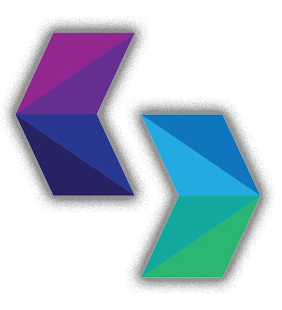Flutter vs Cordova: A Comparative Analysis for Cross-Platform Development
Introduction
As the demand for mobile applications continues to grow, developers seek efficient ways to build apps that run seamlessly across multiple platforms. Cross-platform development frameworks have emerged as a popular solution, allowing developers to write code once and deploy it on both Android and iOS platforms. In this blog, we will delve into two leading cross-platform development frameworks – Flutter and Cordova – and compare their features, advantages, and disadvantages.
Understanding Cross-Platform Development
Cross-platform development refers to the process of creating mobile applications that can be used on multiple operating systems. This approach offers significant time and cost savings, as developers can maintain a single codebase for both Android and iOS platforms, rather than building separate native applications. Two prominent frameworks that enable cross-platform development are Flutter and Cordova.
Introducing Flutter
Flutter, developed by Google, is an open-source UI software development kit (SDK) that enables developers to build natively compiled applications for mobile, web, and desktop from a single codebase. It uses the Dart programming language and boasts a rich set of pre-designed widgets for creating stunning user interfaces.
Code Example – Flutter UI Widget:
import 'package:flutter/material.dart';
void main() {
runApp(MyApp());
}
class MyApp extends StatelessWidget {
@override
Widget build(BuildContext context) {
return MaterialApp(
home: Scaffold(
appBar: AppBar(
title: Text('Flutter App'),
),
body: Center(
child: Text('Hello, Flutter!'),
),
),
);
}
}
Introducing Cordova
Cordova, formerly known as PhoneGap, is an open-source mobile application development framework maintained by the Apache Software Foundation. It allows developers to use web technologies like HTML, CSS, and JavaScript to create mobile apps. Cordova wraps the web code into a native container, enabling access to device-specific features through plugins.
Code Example – Cordova JavaScript Plugin:
// Function to vibrate the device for 2 seconds
function vibrateDevice() {
navigator.vibrate(2000);
}
// Call the vibrateDevice function
vibrateDevice();
Comparison Criteria
Before making a decision between Flutter and Cordova, let’s evaluate their performance, user interface capabilities, development language, native features access, community and ecosystem support, and development speed.
Performance
Flutter: Flutter is known for its impressive performance due to its unique approach of rendering UI elements directly on the canvas. It doesn’t rely on the native UI components, resulting in smoother animations and reduced rendering time.
Cordova: Cordova, being based on web technologies, may experience performance bottlenecks when dealing with complex UI interactions. It heavily relies on WebView components, which can impact app responsiveness.
User Interface
Flutter: Flutter provides a rich set of customizable widgets, allowing developers to create visually appealing and native-like user interfaces. It enables pixel-perfect designs and offers a hot reload feature for instant UI updates.
Cordova: Cordova’s UI capabilities are limited to web technologies, which may not always deliver the same level of performance and flexibility as native components.
Development Language
Flutter: Flutter uses the Dart programming language, which is designed to be easy to learn and comes with a modern syntax. Developers with experience in languages like Java or JavaScript can quickly adapt to Dart.
Cordova: Cordova utilizes standard web technologies like HTML, CSS, and JavaScript, making it accessible to web developers with existing skills.
Native Features Access
Flutter: Flutter provides an extensive range of plugins that offer seamless access to native device features. These plugins facilitate tasks such as accessing the camera, GPS, and other hardware components.
Cordova: Cordova also supports plugins to access native device features, but they are dependent on WebView for execution, which can lead to performance trade-offs.
Community and Ecosystem
Flutter: With the backing of Google, Flutter has gained significant traction, and its community is constantly growing. The ecosystem includes numerous third-party packages and plugins to extend the functionality of Flutter apps.
Cordova: Cordova has been in the market for longer and has a mature community with a vast repository of plugins. However, some plugins may lack maintenance and updates.
Development Speed
Flutter: Flutter’s hot reload feature drastically reduces development time, allowing developers to instantly see the changes made in the code without rebuilding the entire app.
Cordova: Cordova also offers a rapid development cycle, but it might not be as efficient as Flutter’s hot reload, especially for complex projects.
Flutter Advantages and Disadvantages
Advantages
- Rich set of pre-designed widgets for building elegant UIs.
- High-performance rendering and smooth animations.
- Access to a wide range of plugins for native features integration.
- Active community and continuous updates from Google.
Disadvantages
- A relatively smaller community compared to some other frameworks.
- Requires learning the Dart programming language.
Cordova Advantages and Disadvantages
Advantages
- Based on web technologies, making it accessible to web developers.
- Extensive plugin support for native feature access.
- Large community and extensive plugin repository.
Disadvantages
- Performance may suffer due to WebView reliance.
- User interfaces might not feel as native as those built with Flutter.
Use Cases for Flutter
- Creating high-performance, visually stunning mobile apps.
- Apps that require smooth animations and transitions.
- Cross-platform apps with a focus on consistent UI.
Use Cases for Cordova
- Building simple mobile apps with web-based functionality.
- Apps that rely heavily on web technologies and existing web assets.
- Prototyping and proof-of-concept applications.
Decision Factors for Choosing the Right Framework
When deciding between Flutter and Cordova, consider the following factors:
- App Complexity: For complex and performance-sensitive apps, Flutter might be a better choice due to its native-like performance and customizable UI elements.
- Developer Skill Set: If your development team has a strong background in web technologies, Cordova could be a more suitable option to leverage existing skills.
- Project Timeline: Flutter’s hot reload feature can significantly speed up the development process, making it ideal for projects with tight deadlines.
- Community and Support: Evaluate the level of community support and the availability of plugins for each framework based on your app’s specific requirements.
Conclusion
In conclusion, both Flutter and Cordova offer unique advantages for cross-platform development. Flutter excels in terms of performance, UI capabilities, and development speed, making it an excellent choice for complex and visually appealing applications. On the other hand, Cordova is well-suited for web developers seeking to reuse their existing skills and build simple mobile apps with web technologies.
When choosing between Flutter and Cordova, consider your project’s requirements, the expertise of your development team, and the desired level of performance and native UI feel. By making an informed decision, you can ensure the success of your cross-platform mobile application development endeavors.


